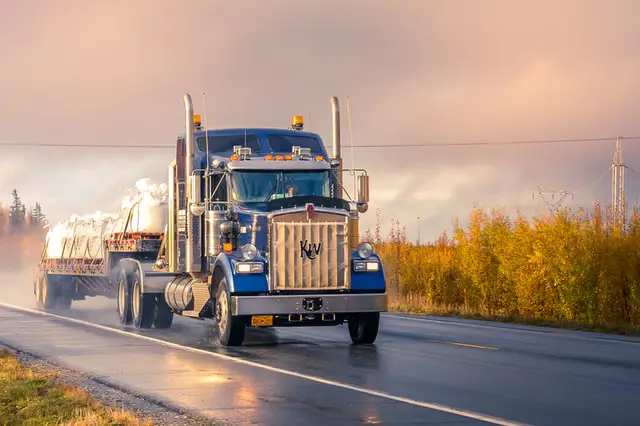Do you own or operate a trucking company? Or are you planning to start one?
If so you will need to know who your target market is and what they look for when hiring a trucking company.
Your target market will be the group of people or businesses who are most likely to use your services.
For trucking companies, this includes businesses and industries that need to transport goods.
You will need to identify what types of goods these businesses and industries transport and what their shipping needs are.
This information will help you determine the best way to market your trucking company to them.
In this article, we will study the target market for trucking companies and review the criteria that they use for choosing one trucking company over another.
Who is the Target Market for Trucking Companies?
To best understand the target market for trucking companies, we need to first understand the reasons why people need them.
By understanding a potential customer’s motivations for hiring a trucking company, we can divide this market into customer segments and study each segment on its own.
Such a needs-based segmentation allows trucking companies to offer services and packages that potential customers are more likely to buy.
Such an analysis gives us the following main segments of the target market for trucking companies:
- Manufacturers
- Retailers
- Wholesalers
- Construction companies
- Farmers and ranchers
Each of these businesses and industries has different shipping needs and so will need a different type of trucking company.
So, let’s look at each one closely.
1. Manufacturers
Manufacturers use trucking companies to ship their products to retailers or directly to customers.
They usually need trucking companies that can handle large loads and have a lot of experience shipping fragile or valuable items.
Trucking companies that specialize in shipping manufactured goods are usually able to provide these services.
2. Retailers
Large retailers often receive goods from manufacturers or wholesalers at hub facilities. So they need trucking companies that can transport these goods from the hubs to their stores.
They also need trucking companies that can make smaller shipments directly to customers who order online.
Retailers need trucking companies with large networks especially if they operate stores in multiple states or countries.
3. Wholesalers
Wholesalers are businesses that buy goods from manufacturers and sell them to retailers.
They need trucking companies that can pick up these goods from the manufacturers and bring them first to their own warehouses and then take them from there to the retailers.
Wholesalers often need trucking companies that can also handle storage and warehousing services. This is because they sometimes need to store goods for a period of time before delivering them to retailers and they may not always be able to use their own warehouses.
4. Construction companies
Construction companies use trucking companies to ship construction materials to their job sites.
This includes things like lumber, concrete, bricks, and other heavy materials.
Construction companies usually need trucking companies that can handle large loads and have experience shipping heavy materials.
5. Farmers and ranchers
Farmers and ranchers use trucking companies to ship their products to wholesalers, retailers or directly to customers.
Trucking companies that serve farmers need to be able to handle perishable goods as well as large loads.
They also need to have experience shipping to different types of customers including grocery stores, restaurants, and other food businesses.
Now that we’ve looked at the target market for trucking companies, let’s review the main criteria that potential customers use when choosing one trucking company over another.
How Do Businesses Select Trucking Companies?
Most businesses use a combination of the following four criteria to select a trucking company for their shipping needs:
- Reliability
- Safety
- Experience
- Price
Reliability
When it comes to trucking and shipping, reliability refers to a number of factors including the company’s ability to pick up and deliver shipments on time, the condition of their trucks and equipment, and the training and experience of their drivers.
Businesses need to be able to rely on their trucking company to get their shipments where they need to go, when they need to be there.
Safety
Safety, in the context of trucking and shipping goods, has many layers.
First, businesses need to know that their goods will be handled safely and securely by the trucking company throughout the shipping process. This is especially a factor when shipping fragile items or valuable goods.
Second, they also need to be confident that the company’s drivers are experienced and properly trained to operate their vehicles.
And finally, they need to know that the company has a good safety record and takes measures to avoid accidents.
Experience
Both the previous points, Reliability and Safety are heavily influenced by Experience.
The more experience a trucking company has, the more likely they are to have well-trained drivers and good safety records.
They are also more likely to have a good understanding of the shipping process and how to avoid delays.
Price
Of course, businesses consider the cost of shipping when choosing a trucking company. While price is important, it’s often not the most important factor.
Businesses need to find a balance between cost and the other factors on this list in order to choose the best trucking company.
After all, it is better that goods or products reach their destination, even if it costs a little more, rather than them not reaching at all, because that cost can be much higher.
Conclusion
The target market for trucking companies includes manufacturers, retailers, wholesalers, construction companies as well as farmers and ranchers.
All these businesses use trucking companies to ship their goods but they each have different shipping needs.
Businesses choose trucking companies based on a combination of four criteria: reliability, safety, experience, and price.

